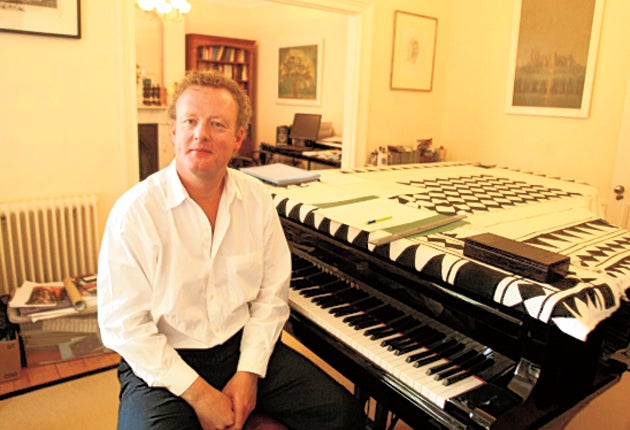The Week in Radio: A double dose of daft death and stylish murder

Your support helps us to tell the story
From reproductive rights to climate change to Big Tech, The Independent is on the ground when the story is developing. Whether it's investigating the financials of Elon Musk's pro-Trump PAC or producing our latest documentary, 'The A Word', which shines a light on the American women fighting for reproductive rights, we know how important it is to parse out the facts from the messaging.
At such a critical moment in US history, we need reporters on the ground. Your donation allows us to keep sending journalists to speak to both sides of the story.
The Independent is trusted by Americans across the entire political spectrum. And unlike many other quality news outlets, we choose not to lock Americans out of our reporting and analysis with paywalls. We believe quality journalism should be available to everyone, paid for by those who can afford it.
Your support makes all the difference.You could never accuse Classic FM of being po-faced, but you'd go far to find a more irreverent approach than in this week's Saturday Concert, "Sticky Endings", which explored the many hilarious and undignified ways that great composers have died. In a show which must have been great fun to research, Howard Goodall, Classic FM's composer-in-residence, ran through Jean-Baptiste Lully, who died of blood poisoning and gangrene after accidentally stabbing himself in the foot with the conductor's baton; Alkan, who was crushed to death by a bookcase; and Borodin, who collapsed in full national dress on the dance floor. The atonalist members of the second Viennese school had appropriately ludicrous deaths: Arnold Schoenberg, who suffered from a morbid fear of the number 13, died on 13 July 1951; and Anton Webern was accidentally shot in post-war Austria, when GIs arriving to arrest his son-in-law saw him light a cigar and assumed it was a weapon. "Yet another smoking-related death!" quipped Goodall, irrepressibly.
Radio 3's Sunday Feature dealt rather more soberly with artistic death, in this case that of David Foster Wallace, who hanged himself at 46, three years ago. Considered one of the finest writers of his generation, Wallace was the author of the 1,000-page Infinite Jest, set in a capitalist utopia where even the years are named after sponsors. I can't be alone in finding Wallace's work faintly daunting, so it was great to get Professor Geoff Ward's beginners' guide which did a thorough job of opening up his themes, including how living in the wonderfully named Normal, Illinois "shaped his love of geometry, straight angles and love of large spaces". Wallace's unfinished novel, The Pale King, is about accountancy and boredom, which sounds like a tough sell but is described by his editor as "a joy to see".
Yet it was the man who glamorised death, or as he so brilliantly dubbed it, the Big Sleep, who provided the most enjoyable radio of the week. Classic Chandler is one of a number of seasons devoted to writers that Radio 4 plans this year – Mervyn Peake and Vasily Grossman are in the wings – and if this is anything to go by they should be well worth it. Somewhat heretically, what I've enjoyed most so far was not by Chandler at all, but Stephen Wyatt, whose play Double Jeopardy was set around the uncomfortable 1944 Hollywood collaboration between Chandler and Billy Wilder writing Double Indemnity. Patrick Stewart played Chandler gruff, uptight and dying for a drink, and Adrian Scarborough did a lovely Billy Wilder, a dry Viennese "as animated as a Mickey Mouse cartoon" frustrated by his collaborator's apparent dislike of Scotch, sex and Christian names. All credit to Wyatt for getting in some truly Chandler-esque similies. Security guards, for example: "Like many who work in security they had that dead grey expression that grows on them like scum on a water tank."
There have been online quibbles about the choice of the English actor Toby Stephens to play Philip Marlowe, but I thought his performance in The Big Sleep was every bit as repressed and alpha as a woman could want. So what that the plot is labyrinthine, and two thirds of the way in you neither know nor care what's happening? Marlowe is about style, not substance, and this was as dry as a vodka martini with two pearl onions on a stick. Chandler works well on radio. You find yourself waiting for the one-liners and then three come along at once. Dramatised by Robin Brooks, with Kelly Burke as an icy Vivian Sternwood, it also starred Leah Brotherhead, excellent as bad-girl Carmen, in possession of the kind of giggle that probably breaches every existing BBC guideline on gender representation.
Join our commenting forum
Join thought-provoking conversations, follow other Independent readers and see their replies
Comments